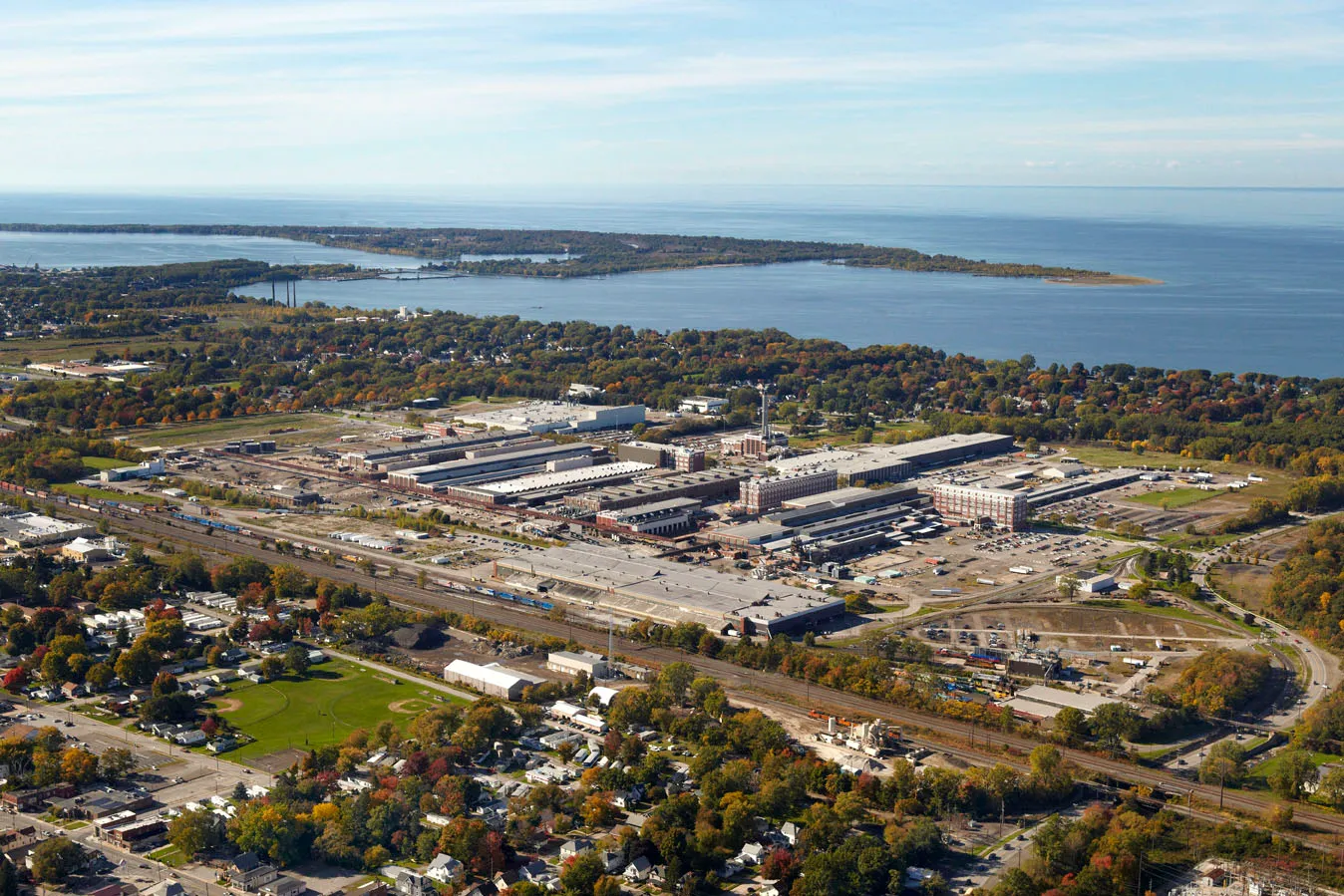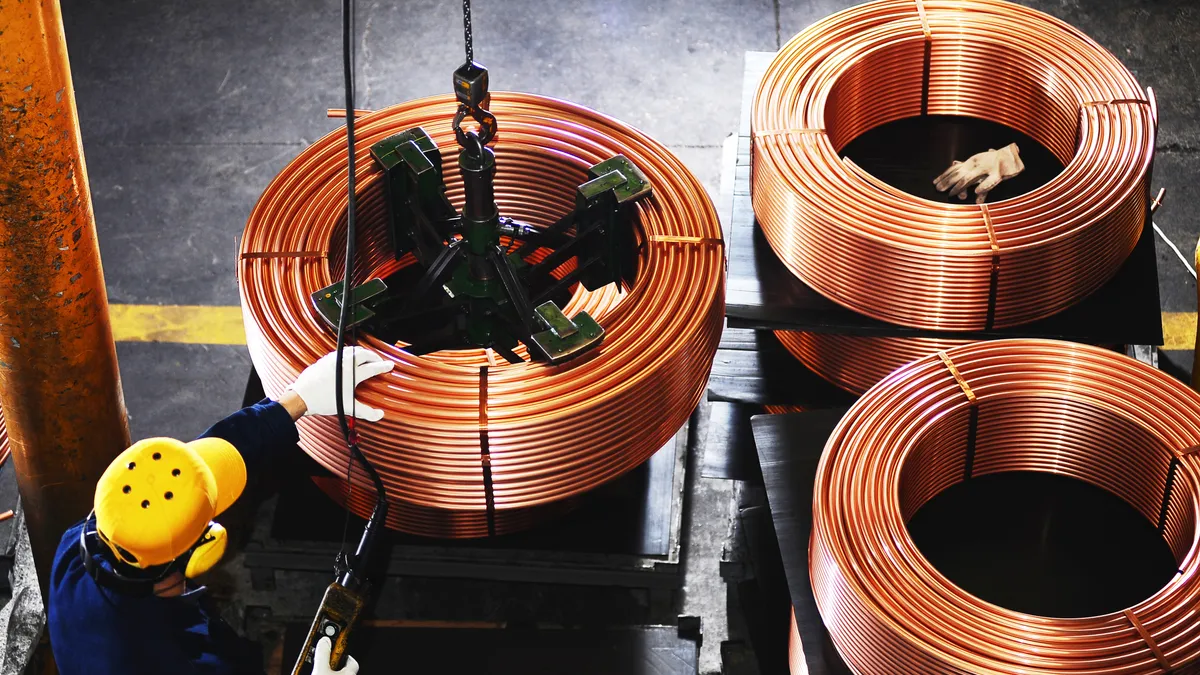It’s been almost a month since 1,400 workers at railroad equipment manufacturer Wabtec went on strike in Erie, Pennsylvania.
Two chapters of the United Electrical, Radio and Machine Workers of America have been on strike since June 22 after six weeks of contract negotiations failed to bring a new labor agreement.
This is the second time in four years the UE Locals 506 and 618 have conducted strikes against Wabtec. The chapters last went on strike in 2019, after the plant’s previous owner, GE Transportation, merged with Wabtec in February of that year. The following day, 506 and 618 went on strike over the companies’ failure to secure a short-term contract preserving workers’ GE Transportation wages and benefits.
The strike lasted nine days, but negotiations lasted 128 days, ending with a new four-year contract agreed upon in June.
The UE has been preparing for a possible strike for over a year, ahead of its current contract negotiations with Wabtec, UE Local 506 Scott Slawson told Manufacturing Dive.
“We kind of had a feeling this was coming,” Slawson said. “Wabtec is a very obstinate company to deal with.”
Slawson added that in 2019, the union was fighting with a new company for a new contract, and when the proposal was found unacceptable, the executive board opted for the union to go on strike with members’ permission.
This time, it was UE’s members who voted down Wabtec’s proposal, Slawson said.
Union members are pressing Wabtec over pay raises, improved healthcare benefits, extended paid time off and holding the company accountable by maintaining the right to strike in the future.
The union also proposed Wabtec initiate a Green Locomotive Project at the plant, requesting the manufacturer upgrade its locomotive stock to modern Tier 4 emission standards to reduce its carbon footprint, including an up to 90% reduction in emissions.
Wabtec, meanwhile, maintains that high costs have impeded the company’s bottom line.
“We made every effort to reach a new agreement that would, at a minimum, not further degrade the competitive position of the Erie Facility,” Wabtec said in a statement on June 22.
Wabtec said it has been going green with its Tier 4 low-emission diesel locomotive and FLXdrive battery locomotive, Tim Bader, director of Wabtec’s external communications, told Manufacturing Dive in an email.
“Wabtec takes an entire company strategy to developing and producing these locomotives, not a site-specific approach,” Bader said. “The company has multiple sites in the U.S. and around the world that build these locomotives. Production sites for these types of locomotives are determined on a case-by-case basis factoring in plant capacity, location, cost competitiveness, and schedule.

The two groups have continued to meet amid the strike, but still do not see eye-to-eye on several issues. In the meantime, Wabtec is subcontracting manufacturing jobs to continue production, which the company said it will end once the contract has been ratified.
Wabtec’s July 11 four-year contract proposal offer includes a 3.65% increase in hourly wages and a $3,000 lump sum payment for all employees in June 2025, in addition to holiday pay after 90 days of employment in its original June 10 proposal.
UE’s updated July 14 proposal includes a 5% increase on the date of ratification, with a 3% hourly wage increase, accumulated personal time depending on seniority, a 40-hour cap on employees using personal time for family and medical leave, a health reimbursement arrangement, modified exercise to strike periods and a ban on Wabtec subcontracting bargaining unit work during the length of the contract, some of which were outlined in its June 10th proposal.
“Building green locomotives is essential to the future of our country, and will benefit the local economy here in Erie,” Slawson said in a statement on June 22. “Unfortunately, Wabtec’s unwillingness to work with us to resolve problems, either through the grievance process or through contract negotiations, is a major impediment to that bright future.”
The next time the two parties will meet is on July 26.
In the meantime, UE Locals 506 and 618 will assist its members such as providing meals and strike pay.
“It's called a struggle for a reason and we're helping each other out and helping each other through this,” Slawson said.
Correction: A previous version of this story misstated the length of a strike in 2019. It lasted nine days. The story was also updated to properly identify two of Wabtec's locomotives.














